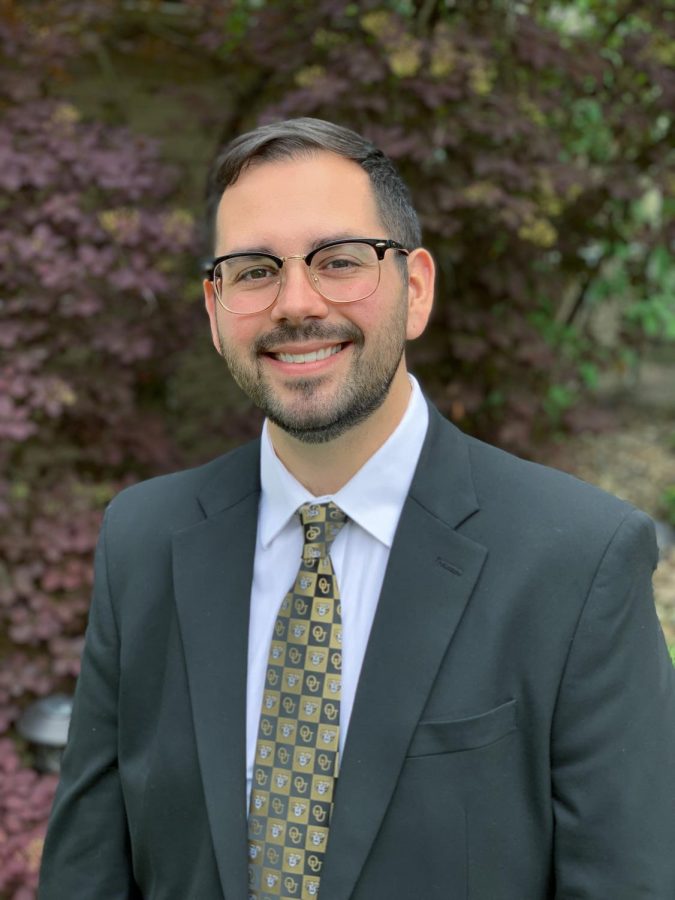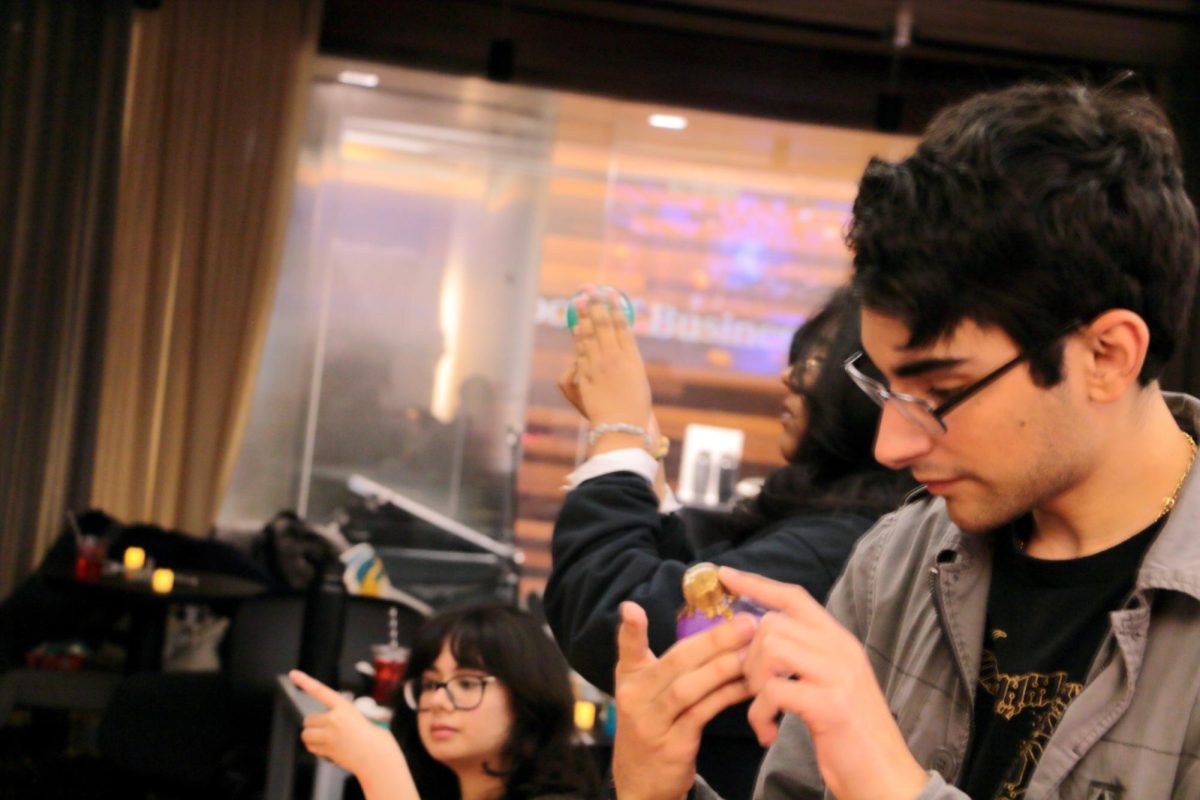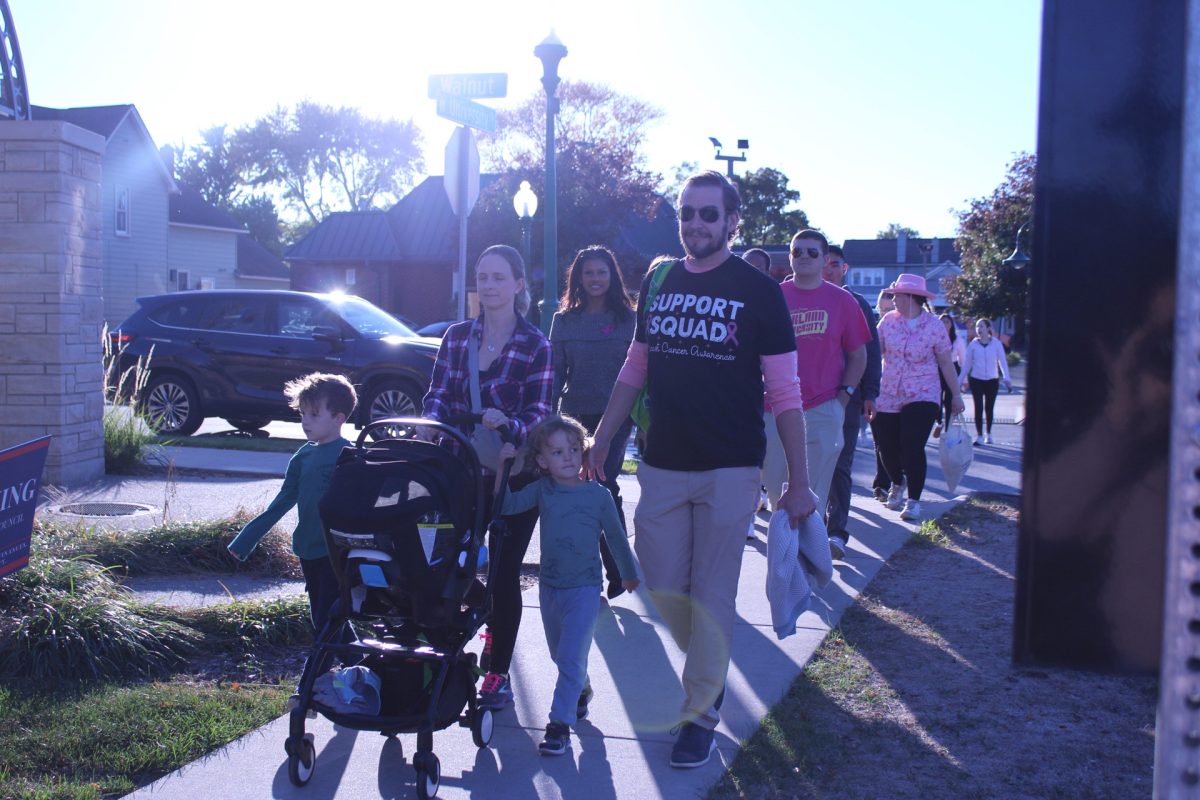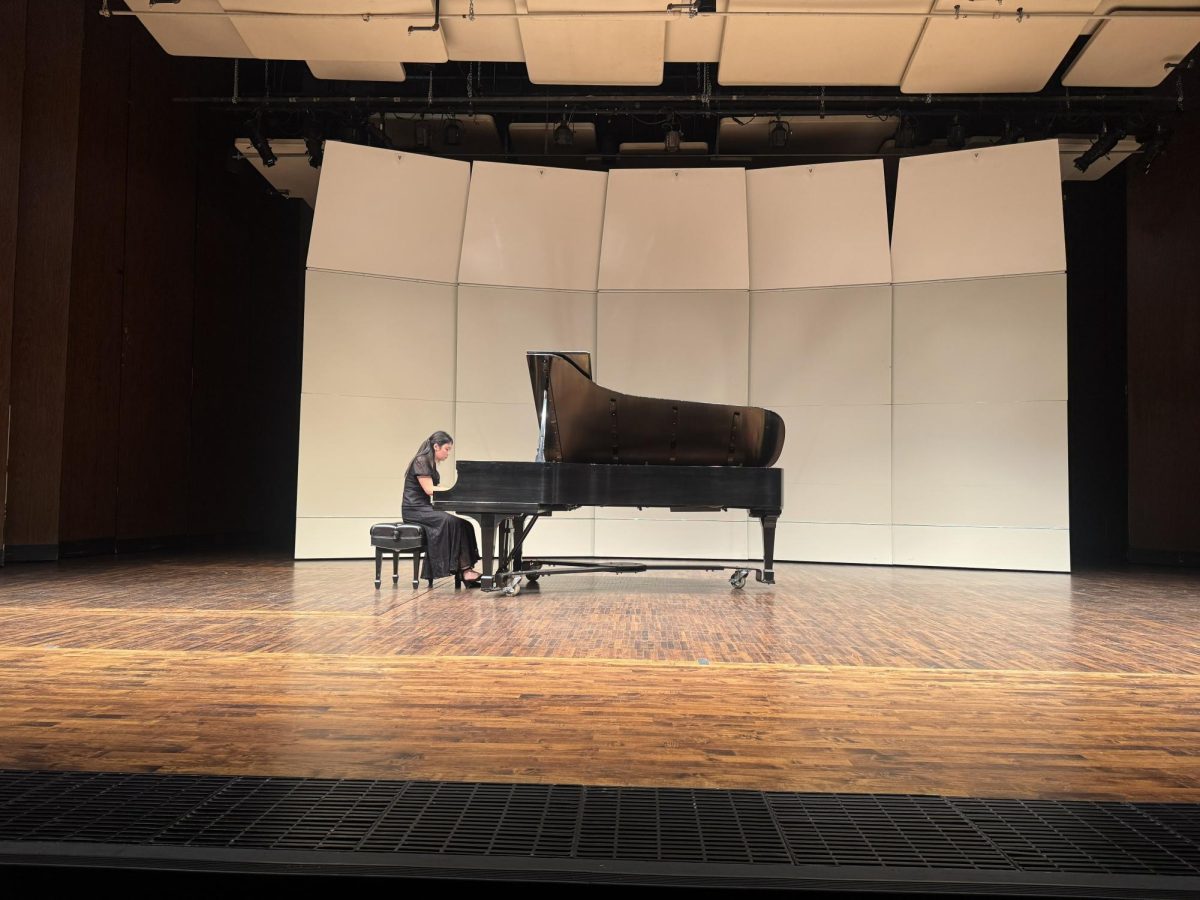On Wednesday, June 12, The Oakland Post sat down with Director of Admissions Shane Lewis to conduct an in-depth interview about Oakland University’s Admissions department. Lewis touched on new strategies to improve student experience, new majors, the Common Application and made predictions about how admissions has been impacted by March Madness. Lewis also discussed improving the transfer student experience and highlighted the direct connection between prospective students and faculty, providing a personalized and unique experience for every student.
This interview has been edited and condensed for clarity.
The Oakland Post: What new programs or majors is Oakland University adding? How is OU staying current in terms of recent advancements in career fields?
Lewis: “We’ve had a few new majors on the scene in the last couple of years that I think are definitely going to draw more of an interest. For example, the School of Engineering and Computer Science just launched artificial intelligence and cybersecurity programs. I think those are definitely emerging fields. I absolutely see students having an interest in being involved in those majors and then eventually those career options. I see those as potentially being hugely popular in the future. Also, there’s a lot of changes in the School of Health Sciences when it comes to the structure of some of our health-related programs. There’s the addition of the master’s program in Physician Assistant Studies. I think that having a PA program at the graduate level will definitely influence more students to want to attend Oakland for a health-related career. Those are a couple of the newer items.”
The Oakland Post: How is OU Admissions different from other Michigan universities? What are some of the unique aspects that we offer?
Lewis: “In terms of the experience to prospective students, something I don’t think you see a lot among many of our peers, is the direct connection that we try to provide to prospective students and families with our faculty and our academics. It’s not very often that a student can come for a visit day and actually get to meet a dean or that the faculty are the ones providing the presentations or offering tours of their labs. The students are actually getting an experience of what it will be like to be a student here. At Oakland, we’re just the right size where you feel like you can actually get connected to your professors. You’re not just a number in their classroom, they get to know you, and you have an experience in their research lab or in other ways outside of the classroom. We’re introducing students to that before they even get here. And that’s something I don’t think you see a lot in the recruitment process, especially larger schools, it’d be unheard of that you’re meeting a dean.”
The Oakland Post: If you had the opportunity to say something to all the prospective OU students thinking about attending, what would you say?
Lewis: “Honestly, I think that one of our best features is our location. Our placement in Metro Detroit — surrounded by opportunity — gives students a much greater opportunity to get connected in their field. Students are able to get hands-on experience, internships and research opportunities. All of the sectors of work that students will be going into, for majors that we offer here at Oakland, you can get those experiences right around the corner. Our faculty, a lot of them are still connected in industry. When time comes for graduation, students are much more likely to have had experiences that are going to set them apart from others that are applying for the same job. That’s something that’s truly unique to us.”
The Oakland Post: What’s a new advancement or project that admissions has done recently?
Lewis: “One of the newest things that we actually just implemented this year is that we for the first time have a regional admissions advisor. She actually lives in Grand Rapids, and she performs all of the recruitment activities for western and northern parts of the state. She’s from Grand Rapids, and she’s a double alum here at Oakland, so she’s still really connected to our office and team. That’s a unique opportunity for us to really be embedded in the Greater Grand Rapids area in a way that we haven’t been before. We’re able to use her connections and the relationships that she’s building with counselors and community-based organizations to help students who may not have or may not be familiar with Oakland.”
The Oakland Post: This year, Oakland University joined the Common Application for the first time. Talk about this process a little and how it has impacted admissions.
Lewis: “So this year, we joined the Common Application. Historically, we were not a part of the Common App, because we have a free application. As you know, Oakland has no fees. Because we are a fee free institution, we always directed students to our free institutional application. Given that most of the public institutions in Michigan had joined the Common App, we didn’t want to not be represented there. We didn’t want them to see all of our peers and not see Oakland. We joined this year, and about half of the applications or a little more than half that have come in this year are from the Common App. About half of the students are still making their way to the institutional app, and they prefer that method. Either way, it’s still free for students. So, either way, they’re not paying a fee to apply to OU.”
The Oakland Post: Supporting first generation college students is a major goal of Oakland, what has the department been doing to help this specific demographic out?
Lewis: “I personally am a first-generation college student— I’m the first in my family to ever go to college. That’s one of the reasons I really love our work in admissions is because I love being able to provide students access to higher education. Access is certainly one of our missions and helping students get connected to higher education. The research shows that students who complete a bachelor’s degree live longer, are healthier and have much higher lifelong earnings in their life. For those three reasons alone, I think that is enough to motivate students to want to pursue college. I also know personally, going to the university totally changed my life — it completely changed my trajectory in life. I wouldn’t be where I am today if it wasn’t for my college experience. I want to get more students connected to this experience because I know firsthand what it can do for you as a person.”
The Oakland Post: Appearing in March Madness has had a major impact throughout several departments on campus. Although we don’t have concrete admissions data yet, what are your predictions?
Lewis: “Appearing in March Madness is a great opportunity for us to expand our reach not only outside of our general area, but outside of the state of Michigan. This year, for example, we have applications from students in 49 of the 50 states. The only state we do not have an application from right now is Wyoming. Maybe being in March Madness will help us get that first application from Wyoming. Typically, we will enroll students from roughly 20 or so states across the country. This year, it looks like we might be more at about 25. Hopefully that’s a sign that we are starting to expand our reach. My hope is that being on the national stage like that gives people an opportunity to look into who we are. Who are we? What do we offer? Do I want to take a visit? Hopefully they’ll see our website and take a look at our visit opportunities, and they will see it as another viable option for them to consider in their college search.
What we saw last time when we were in the March Madness tournament in 2012 was an increase in enrollment the following year. Because March Madness is relatively late in the admissions and enrollment cycle for the high school population, we don’t typically see a huge boost that year, but we may see it next year. Back in 2011, we saw about a 5% increase in enrollment in both the first year and to the transfer student population. Our hope is that we will be able to possibly repeat that with this year’s appearance. We did already see a ton of interest because the night that we won that first game, the university’s website crashed due to the number of visitors — that’s a really good sign that people were interested in learning about who we are.”
The Oakland Post: Let’s talk about non-traditional students, such as veterans or parents. How has admissions specifically impacted that group of students?
Lewis: “Nationwide, there are more students above the age of 25 that are attending higher education than students who are under 25. Even though we typically have called those students non-traditional, they have actually become the new traditional college students. We actually refer to them here at Oakland as adult learners — that’s really any student who is 25 and older. We’re seeing more students who have earned some college credit but just have never finished that degree. We’re doing all we can to encourage them to return. We actually have a program here called Golden Grizzlies Graduate, where we reach out to Oakland students who started OU. For whatever reason, they never finished that degree — maybe they started a family, perhaps they started working, maybe they had to leave to care for a loved one. We’re trying to say, ‘Perhaps now’s the time for you to come back. Why don’t you talk to us about what that might look like.’ We’re able to offer them kind of a bridge back to the university, and also give out microgrants to kind of help with the ease of the cost. We’re really proud of that initiative.
Also, our faculty and some of our academic units have been working really diligently to try to modify programs or increase offerings so that we have more online, more hybrid, more evening and weekend coursework so that we can really accommodate the schedules of the adult learners. They may be raising children, they have a job, they might still be working 40 hours a week. We’re really proud of that work, being able to kind of expand more of those options, especially in the last couple of years.”
The Oakland Post: Oakland recently signed a transfer agreement with Oakland Community College to help out prospective engineering students. What else is admissions doing to further support transfer students?
Lewis: “Transfers are a huge population at Oakland, actually, about 40% of our student population at OU came in as transfers. It’s a very significant population. We are among the top transfer destinations in Michigan. We are way up there in choice for students who are at community college or even another four-year institution and are looking to come here to finish their bachelor’s degree. We are always looking for new routes and new avenues for students. We have what we call articulation agreements, which are opportunities for the community college faculty and our faculty to work together on an agreement that says essentially, if you complete this coursework at the community college, it will directly transfer over and satisfy these requirements here at Oakland. That way, that process is seamless. We also have what we call TAG, it’s the Transfer Admission Guarantee. We’re essentially telling students, look, if you’re starting at the community college, and you are earning at least a 2.5 GPA, we’re going to guarantee that you’re going to be admitted to Oakland. We’re removing that barrier. We want them to feel like they can approach us to talk about the transfer path. We’re trying to again kind of demystify that admission process and make students, especially first-generation college students, feel more comfortable and that they feel like this is something they can attain.”
The Oakland Post: Looking toward the future, what are the overall goals of admissions? What are your expectations for future cycles?
Lewis: “A personal goal of mine is getting more students connected to higher education, so that is always also a goal of the office. We know that Oakland may not be the right choice for every student out there. But we also know that it is a fantastic choice for a lot of students. Our job is to get that in front of you. To get them to see all their choices and, hopefully, visit campus and see that Oakland might be the best place for them. Our hope is that we’re going to continue to support the university in meeting its enrollment goals. Again, we’re getting more students connected to higher ed. I feel like we’re always doing something new.”






